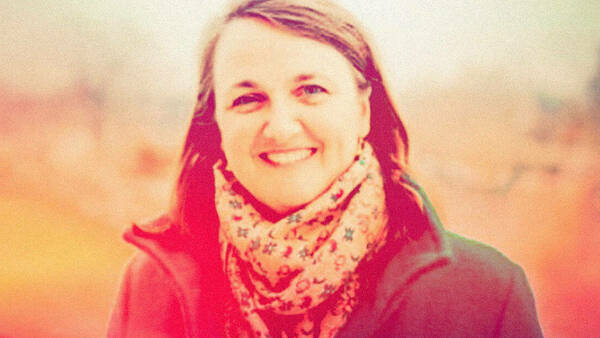For much of her life, Loretta Rietsema ’80 didn’t spend much time with women. And whether she was attending a newly coed Notre Dame or serving as an officer in the United States Coast Guard, she was always trying to show men that she was as capable as they were, if not more so.
“I had spent my whole life being one of the guys and priding myself in that,” she says. “I can run faster than you, I can jump higher than you, I’m smarter than you. And conveniently, I could drink you under the table. Which, as far as I was concerned, made me even better than you. That was one of the lies I told myself for a long time.”
As it turned out, the only person she was beating was herself. Rietsema had become so good at drinking that she didn’t realize that she couldn’t stop. Losing control was not something she was used to.
“The disease of alcoholism does that,” she says. “I could not—I would not—accept that I didn’t have a choice. I really thought that there had to be a way that I could control it, because I had been able to do pretty much anything else that I had ever wanted to. But this one got me. There was no winning this battle. That feeling you get when you feel like you’re going to explode if you don’t take a breath—that’s what people with alcoholism wake up feeling like in the morning.”
Rietsema went to rehab once to no effect, but after her husband kicked her out, filed for divorce, and got a restraining order keeping her away from her three children, she accepted that she was an alcoholic and embraced recovery. This time after leaving rehab she knew she wanted to stop drinking and was willing to do anything to that end. Because returning home was not an option, she pursued the opportunity to live in a sober living house for women.
The New York housewife traveled to Albuquerque and joined a group of about 50 women, many of whom were convicted felons trying to get sober before going on parole. The six months she spent there were difficult, not just because she had to work at a pancake restaurant for two dollars an hour during the day and sleep on a wood palette in a crowded room at night. At the sober living house, she finally had to confront who she was.
“It got rid of all the stuff I had been hiding behind my whole life,” Rietsema says. “I hid behind my parents and their success, I hid behind Notre Dame, and then I hid behind the military. If you asked me who I was, those were all the things I told you, because I had no idea who I was. And once I discovered alcohol, I never had to find out. So all of a sudden I got to Albuquerque, and all these things that I thought defined me were gone. What do you do when you find yourself some place where none of your accomplishments mean anything? What are you left with? And that’s what you have to find out.”
Rietsema realized there was a reason why she had always gravitated toward men: most of her relationships with them hadn’t pushed her to self-reflect, to question her identity. Women, she discovered, pushed her to develop relationships that were honest, caring, and loving.
“I used to think women are just like men,” she says. “No, women are not just like men. We are certainly capable of doing the same things that men do, but we tend to do it differently. And one of the incredible things women do is share. We share our stories, we share our recipes, we share our workouts, hell, we share our shoes. And so when one woman becomes sober and embraces recovery in her day-to-day life, the ripple effect of that recovery is so transformative.”
Rietsema’s recovery certainly has been transformative, both for herself and others. She reunited with her family, and with their support, in 2008 she opened The Mary DeVeau Women’s Sober Living House in Plattsburgh, New York, where she lives.
“I had to literally fight for it at city hall in a very public forum,” she says. “I was on the front page of the newspaper after the first hearing as the town drunk trying to bring more drunks to Plattsburgh.”
Despite initial resistance, the house opened just a few blocks away from Rietsema’s own home. She visits with the women who live there (generally about 10 at a time) and has her two managers keep her up to date on how the residents are doing. They now have a popular monthly dinner with other members of the community, and people have begun thanking Rietsema for her work. Over the years, the residence has become not just a house, but a home—a place where women treat each other as family and share meaningful experiences.
“Any experience shared is enhanced by virtue of it being shared,” Rietsema says. “Anything I do alone, if I can do it with someone else, all of a sudden the experience, and the gratification I get from it it, and all the benefits, are increased exponentially. And so that’s what happens in the sober living house.
“We’ve got a very simple structure that is actually no different than the structure of any healthy family. The women have responsibilities, are accountable to one another, people support each other. I often hear the residents say to each other, ‘Are you going home now? Do you want to go home now, or do you want to get some coffee?’ It just makes me happy, because that’s exactly what it is. It’s a home, with all of the ups and downs that go along with living in a home.”
To learn more about the work The Mary DeVeau Women’s Sober Living House does to help women who are in recovery from alcoholism and/or drug addiction, please visit marydeveauhouse.org.



